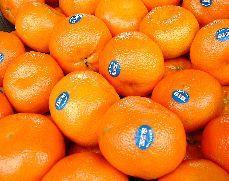
It has been a lacklustre season for the mandarin industry this year with a high Australian dollar and a smaller crop than last year conspiring to diminish takings across the board.
Gayndah Pack Cooperative general manager Barry Scott said the Queensland-based company has exported less than in previous years and has been forced to sell more on the domestic market.
As well as a smaller volume of fruit, problems with superficial damage to crops of Honey Murcott meant there was less top-grade fruit available to export to discerning markets in Asia.
Dust storms early in the season marked some fruit and made it less desirable to markets where it is commonly bought for gifting, he said.
“We’ve had to put a bit more into the domestic market, which has slowed the sales down,” he told Fruitnet.com.
Declining consumer interest in the Honey Murcott variety in the domestic market has also made sales more difficult.
Adding to the problem of fruit quality the high Australian dollar has made it more difficult to sell into overseas markets, he said.
Doug Hammonds of Australian exporter CSI, however, pointed out there have been some positives in the industry. He noted that the export market for Australian citrus is diversifying with fruit going into new areas in the Middle East and the Pacific Islands, which will add stability to the industry.
While sales of Honey Murcott at home are tending to slow, he said other varieties have been selling well.
“Domestic demand is playing a more and more important role, and demand at home was strong. For some growers it can bring the bigger return.”
Mr Hammonds said fruit quality has generally been pleasing this year with good brix readings reported and only a few isolated problems with fruit quality.
One of the positives of the season, he added, is that prices in the market have been comparable to previous years, despite a downward trend in world markets.



